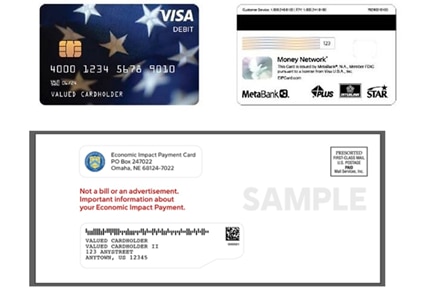- Office of Consumer Affairs and Business Regulation
The Department of the Treasury and the Internal Revenue Service (IRS) have sent millions of Americans a second round of stimulus payments this month. As checks roll out, scammers are working to defraud consumers of these funds. The Federal Trade Commission (FTC) reports that consumers lost over $200 million to COVID-19 related scams last year.
The second round of Economic Impact Payments (EIP) are being distributed at a rapid rate by direct deposit or by mail. Mailed payments will arrive in the form of a debit card or a paper check. Due to this accelerated distribution process, some payments may be delayed this cycle. In order to avoid falling for fake check scams, the IRS urges recipients to follow the guidelines below and to wait patiently for checks arrive.
Common stimulus scams to look out for:
- Offers to expedite the stimulus payment process for a fee. Currently there is no way to speed up the process by paying someone or by applying for a specific program.
- Calls and texts asking you to verify information in order to receive your check. Neither the federal, nor the state government, would ever contact you to request personal information regarding your Economic Impact Payment.
- Unsolicited mail containing fraudulent checks or fake EIP debit cards. Scammers may send fake checks or EIP debit cards and ask you to send money back to them through a wire transfer or gift cards. This is a fake check scam. The federal or state government would never ask you to send money back to them after receiving your check.
Here is what the official IRS payment looks like:
- The form of payment for the second stimulus check may vary from the first one, but will be either a paper check, direct deposit, or a prepaid debit card.
- The payment amount should be worth $600. Some individuals or families may receive additional funds based on eligibility.
- EIP debit cards will arrive in a white envelope with a U.S. Department of Treasury seal on the front. The envelopes will also include instructions on how to activate your EIP debit card.
- Debit cards have a Visa® logo on the front and the name of the issuing bank (‘MetaBank’) on the back.
Anything outside of the aforementioned criteria may be fraudulent. By law, all payments must be disbursed to consumers by January 15th.
Report stimulus payment scams:
- The Federal Trade Commission (FTC) ftc.gov.
- The U.S. Postal Inspection Service uspis.gov/report, 877-876-2455.
- MoneyGram at 1-800-MONEYGRAM or Western Union at 1-800-325-6000, to stop payment via wire transfer.
- The Massachusetts Attorney General’s office mass.gov, 617-727-8400.
If you received the first round of EIP payments, you are likely eligible for this stimulus payment as well. In most cases, payments are sent to taxpayers automatically. Use the tools below provided by the IRS to track your payment.
Track your stimulus payment:
- IRS’ Get My Payment tool.
- Claim Recovery Rebate Credit on your 2020 tax return if the IRS does not have your information yet.
- Activate your EIP card here.


